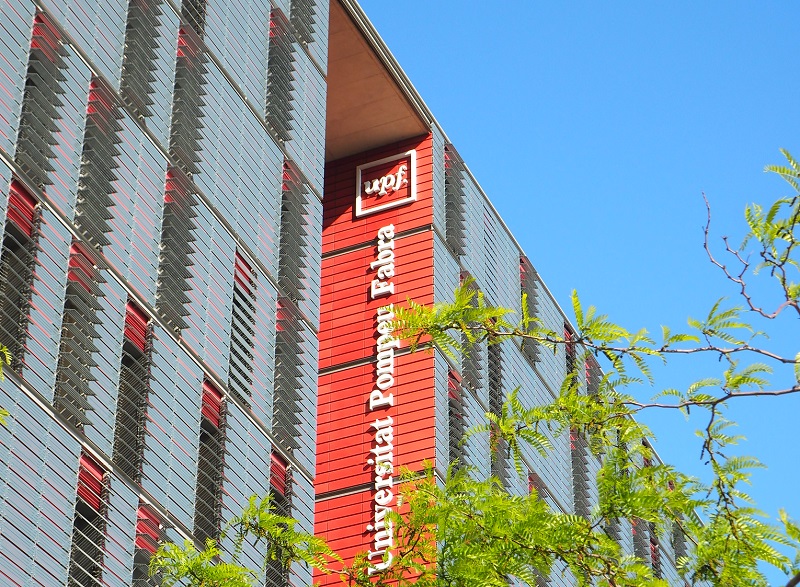Six researchers awarded ICREA Acadèmia 2019 grants to enhance their research
Xavier Serra and Davinia Hernández Leo (Information and Communication Technologies), Jordi Garcia-Ojalvo (Experimental and Health Sciences), Alexandre Coello (Humanities), Aida Torres (Law), and Mariano Torcal (Political and Social Sciences).

Six permanently associated members of the UPF teaching and research staff been distinguished within the framework of ICREA Acadèmia 2019, a programme to reward research excellence that allows research enhancement.
This distinction, awarded by the Catalan Institution for Research and Advanced Studies (currently UPF has a total of 25 researchers who receive this aid), is endowed with 40,000 euros annually for a period of five years.
First grant for Davinia Hernández Leo, Alexander Coello and Aida Torres
Davinia Hernández Leo, a full professor with the Department of Information and Communication Technologies (DTIC), leads the Interactive & Distributed Technologies for Education research group (TIDE). Her work is at the intersection of networks and computer applications, human-computer interaction and learning sciences; all framed in the field of learning technologies.
Alexandre Coello de la Rosa, a contracted full professor with the Department of Humanities and member of the Jaume Vicens Vives Institute of History (IUHJVV), is an expert in the historiography and ethnography of Jesuit missions in the Americas and the Mariana Islands. A scholar of Latin American history, especially of colonial Latin America and the church, he is an expert in ambivalent identities, hybridity and comparative systems of social classification.
Aida Torres is an associate professor of Constitutional Law with the Department Law at UPF. In recent years, her research has focused on the plurality of rights protection systems in Europe, including the Charter of the European Union and the European Convention on Human Rights, and national constitutions. She has developed a theory of judicial dialogue as a source of legitimacy in the interpretation of fundamental rights.
Mariano Torcal, Xavier Serra and Jordi Garcia-Ojalvo awarded again
Mariano Torcal, who had already been awarded the ICREA Acadèmia distinction in 2014, is a full professor of Political and Social Sciences and director of the Research and Expertise Centre for Survey Methodology (RECM-UPF). His research interests focus on changes in political trust and the evaluation of democracy by citizens, brought about by the expansion of multi-level governance and the economic crisis.
Xavier Serra, who had already obtained this grant in the announcements of 2008 and 2013, is a full professor with the Department of Information and Communication Technologies (DTIC). Here, he directs the Music Technology Group (MTG) and is the head of Audio Signal Processing Lab (ASP Lab). His research focuses on understanding music sound signals, combining signal processing and machine learning methods with semantic technologies.
For Jordi Garcia-Ojalvo it is also the third time he has received the ICREA Acadèmia distinction, having been awarded in the 2009 and 2014 calls. He is a full professor of Systems Biology and head of the Dynamical Systems Biology Lab at the Department of Experimental and Health Sciences (DCEXS). The laboratory’s long-term goal is to understand how the behaviour of living systems arises (particularly of cells and tissues) from the interactions between their components (genes and proteins within cells and cells within tissues).
Projecting research internationally
The ICREA Acadèmia programme was launched in 2008 to encourage and reward research excellence of permanently associated teaching and research staff doctors at the public universities of Catalonia. Being selected allows the researchers greater dedication to their research, a reduction in their teaching load and significant financial aid.
The programme, which increases the impact and the international projection of the research carried out in Catalonia, prioritizes detecting and encouraging teachers with the greatest potential for scientific growth, and especially values how it can benefit the candidates’ research careers.
